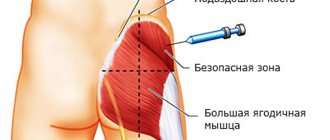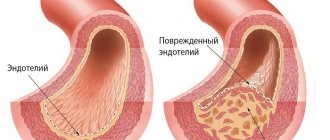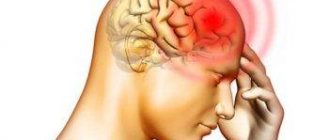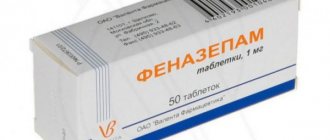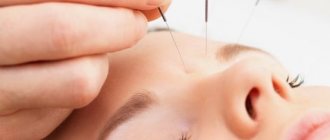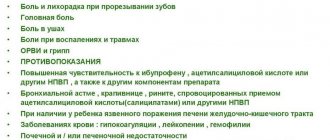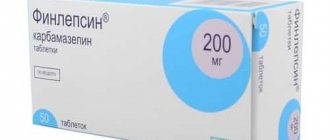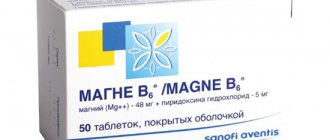Are vitamins effective for neuralgia?
Modern therapy for neurological diseases is complex and aimed at various stages of development of the pathological process, as well as at eliminating the symptoms of damage to the nervous system.
Principles of vitamin therapy
Vitamins (especially B vitamins) are extremely important for the normal functioning of both the central and peripheral nervous systems.
These include, first of all, compounds such as:
- Vitamin B 1 – thiamine. It is indispensable in the processes of intracellular metabolism, prevents “cellular aging”, having antioxidant activity, and helps normalize the conduction of nerve impulses. With a deficiency of the vitamin, which is observed in chronic alcoholism, Wernicke encephalopathy can develop, a condition characterized by high mortality.
- Vitamin B 6 – pyridoxine. Its task is the regulation of protein metabolism in the cells of the nervous system, the utilization of protein breakdown products, and a number of processes in the synthesis of neurotransmitters.
- Vitamin B12 – cyanocobalamin. It is sometimes called a "growth factor." Its task is to participate in many processes occurring in the peripheral and central nervous systems: regulation of methionine synthesis and hereditary “memory” - nucleic acids.
Well-known vitamin B-12
The use of vitamins in the treatment of many neurological diseases can reduce treatment time. The use of vitamins is possible using different ways of entering them into the body.
Pharmacological characteristics of vitamin preparations
The least effective, but at the same time the most pleasant way is to take it orally (through the mouth), in the form of pills. Despite all the advantages, this method has significant drawbacks: when absorbed into the blood, substances pass through the liver, and quantities that may not have a therapeutic effect may enter the bloodstream. Despite various attractive names (neuromultivitis), the effectiveness of such drugs is not high enough. At least, there is not a single recorded case where taking “vitamins” cured severe neurological pain. This is, in principle, possible, but in the conditions of a clinic of severe vitamin deficiency. Thus, a decoction of rose hips worked wonders against scurvy - a deficiency of vitamin C, raising people to their feet in a few days.
The second, most popular way of administering vitamin preparations for the treatment of neuralgia is through intramuscular injections. Modern medicine has combined vitamin preparations for intramuscular administration. People of the older generation, visiting a neurologist in the last century, remember how 2-3 injections were given at the same time, since vitamins could not be mixed in one syringe. Currently, there are such remedies, for example, Milgamma Compositum - a combination of several B vitamins in one syringe. There are many similar drugs, for example, Combilipen, Neurobion, Trigamma and many others. Their use in complex therapy of neuralgia of various origins has shown sufficient effectiveness, much greater than the use of oral medications.
However, getting directly into the systemic bloodstream, vitamins, although they do not pass through the liver and are not influenced by its microsomal system and the cytochrome system, but, evenly distributed in the bloodstream, do not have an end point of application to a specific place.
A way out of the situation is provided by the third, most advanced method of administering vitamins for the treatment of neuralgia - electrophoresis.
The photo shows electrophoresis, one of the ways to introduce vitamins into the body
The essence of electrophoresis is that, under the influence of an electric field, vitamin molecules penetrate through the skin and tissue directly into the area that needs treatment. In some cases, the simultaneous administration of multivitamins intramuscularly is justified, alternating them with sessions of electrophoresis of the area that is the source of painful impulses.
Vitamin preparations are certainly necessary in the treatment of most neuralgia. The main thing is to use them in combination when they have an auxiliary effect. For example, taking vitamins allows you to reduce the doses of other medications, such as non-steroidal anti-inflammatory drugs. In this case, the risk of overdose, frequency and severity of side effects are reduced.
neuralgia24.ru
How to measure your B vitamin levels?
A deficiency of B vitamins can occur due to a number of reasons:
- nutritional deficiencies due to a strict vegetarian diet;
- problems with the absorption of vitamins in the intestines due to atrophy of the mucous membrane or diseases of the gastrointestinal tract;
- helminthiasis;
- Smoking and alcohol also reduce the level of B vitamins in the body.
You can measure your vitamin B12 and vitamin D levels with a simple blood test. A referral for this test can be issued by a physician, or the patient can do it independently at any medical clinic in St. Petersburg that provides laboratory testing services.
Tablets for neuralgia: choosing effective drugs
Neuralgia is a fairly common ailment associated with damage to areas of the peripheral nerves. The pain that occurs as a result of pathology can manifest itself in absolutely any part of the body. To cope with unpleasant sensations, doctors recommend using external remedies (gels, ointments) and tablets for neuralgia. In addition, the cause of the disease must be treated.
Reasons for the development of the disease
Peripheral nerve fibers are able to capture information about processes occurring in tissues due to the presence of special receptors. If the fibers are damaged, the receptors begin to transmit distorted impulses to the central nervous system. The pain syndrome affects not only the site of injury, but also spreads to the areas where the signal-transmitting nerves pass.
Neuralgia is not an independent pathology, but only indicates the development of an inflammatory process in the system. The disease can be triggered by hypothermia, injury, disturbances in the functioning of the cardiovascular system, infections, heavy metal poisoning, pathologies of the musculoskeletal system, and diabetes. The most commonly diagnosed cases are intercostal neuralgia, in which pain occurs in the chest area.
Which pills to choose for neuralgia?
Medicines that help relieve pain from neuralgia only eliminate the symptoms, but have no effect on the true cause of the disease. Despite this, painkillers are used first. Typically, specialists prescribe drugs such as Ketorol, Analgin, Ketoprofen, Ketonal Uno. Drugs with a prolonged analgesic effect should be taken no more than once a day. The duration of treatment depends on the severity of pain attacks.
Injections have a more pronounced therapeutic effect, but most patients find it more convenient to take tablets.
Novocaine blockades save you from neuralgia with severe painful attacks. They are prescribed only by the attending physician. It is mandatory to take B vitamins. Their lack in the body often leads to pathological phenomena. The most effective medications in this category include the following:
- "Neuromultivitis".
- "Neurovitan."
- "Neurobion".
- magnesium + B vitamins (“Doppelhertz Active”).
- "Pentovit."
Muscle relaxants and sedatives are also included in therapy for various types of neuralgia. The duration of treatment with each drug is determined solely by the doctor.
Vitamins "Neuromultivit"
The tablets, the price of which ranges from 340-380 rubles, contain the water-soluble vitamins B1, B6 and B12 necessary for the body. The main task of the drug is to stimulate metabolic processes in the central nervous system and restore damaged areas of nervous tissue.
This vitamin complex has an analgesic effect and can be used for neuralgia, pain syndromes, and mononeuropathy. Thiamine (vitamin B1) is necessary for regulating lipid, protein and carbohydrate metabolism. Pyridoxine (vitamin B6) is involved in maintaining the normal functioning of the central and peripheral nervous systems. Vitamin B12 (cyanobaclamin) is necessary for normal hematopoiesis and the formation of red blood cells.
How to use?
Neuromultivit tablets for neuralgia are intended for oral use immediately after meals. It should be taken into account that damage to the protective shell leads to a change in the pharmacological properties of the drug. Therefore, chewing or splitting the tablets is prohibited.
Depending on the severity of the symptoms of the pathology, the drug should be taken 1-3 times a day, 1 tablet. The duration of therapy is no more than 1 month. The drug can be used in pediatric practice to treat children over 12 years of age. Neuromultivit is not prescribed during pregnancy.
fb.ru
Anti-stress vitamins for children
Vitamin and mineral complexes for children can satisfy the needs of the nervous system 100%.
When choosing a drug for a child, you must follow some medical recommendations. The remedy should:
- appropriate for the child’s age;
- be hypoallergenic;
- contain not retinol, but beta-carotene;
- be designed for 2-3 doses per day.
Preparations for a child aged 1 to 3 years must contain:
- cyanocobalamin;
- folic acid;
- ascorbic acid;
- calciferol;
- iron;
- iodine;
- calcium;
- zinc.
Proven and effective children's drugs for strengthening the central nervous system include:
- domestic multivitamin complex Alphabet;
- Centrum (USA) - sweet tablets with raspberry flavor for children 2-4 years old;
- Vitrum Kids (USA) - chewable tablets for children aged 3 years and older;
- Vitrum Junior (USA) - chewable tablets for children from 7 to 14 years old;
- Multi-tabs (Denmark) is a powerful drug that has several options designed for different age categories (Multi-tabs Junior, Multi-tabs Baby, Multi-tabs Baby);
- Pikovit (Slovenia).
Treatment for intercostal neuralgia?
Intercostal neuralgia occurs when the nerves that run between the ribs are compressed or irritated. During the pathological process, unbearable, excruciating pain appears, which increases when a person inhales deeply, coughs, or moves. Often, for intercostal neuralgia, drug treatment is used, prescribed by a neurologist.
Recommendations on how to get rid of pain from intercostal neuralgia
When a person experiences severe unbearable pain in the intercostal area, consult a doctor. It is important to diagnose the disease in time, because many pathologies can be hidden under the symptoms of neuralgia - serious heart disease, colic in the kidneys. The doctor prescribes timely treatment, with which you can improve your performance.
You should not self-medicate, it is very dangerous, it is important to take into account all contraindications and side effects. The medicine will help relieve pain. In order for medication to be effective, you must adhere to the rules of administration. During the first days of illness, when the pain is unbearable, the patient must refuse work and adhere to bed rest. You need to lie on a hard, level board, do not lie on high pillows.
Analgesic drugs for intercostal neuralgia
The patient must take medications that can help relieve pain. In this situation, it is recommended to use non-steroidal anti-inflammatory drugs. They are prescribed only by the attending physician.
For unbearable pain, you need to use intramuscular injection of painkillers - Ketorol, Ketonal, Analgin. The course of therapy is up to 10 procedures. Medicines cannot be used for a long time; serious stomach diseases, ulcers, and gastritis may occur.
Ketonal refers to rectal suppositories. The dosage form is suitable for the elderly, it can be used to relieve pain, it is a fast-acting remedy. Non-steroidal drugs against inflammation are used, it is best to use them as gels, ointments - Ketonal, Nise, Voltaren, Diclofenac. Apply a small layer of ointment to the affected area of the body. Locally use a patch with medicine - Ketonal thermo. The patch is best used before bedtime.
It is recommended to take pain relief tablets internally - Baralgin, Analgin, Movalis, Nise. Take three times a day after meals. The course of therapy consists of long-term use of drugs, with its help you can heal the intestines and stomach. Melox forte should be used once a day.
Vitamins for intercostal neuralgia
If you are sick, it is recommended to take vitamins B, B1, B6, B12. It is recommended to use intramuscular injections. You also need to alternate B1, B6. In some situations, it is necessary to take a multivitamin.
Other methods of treating intercostal neuralgia
If acute pain bothers you, you need to inject the affected nerve with novocaine. It is also recommended to use medications that contain snake and bee venom. Do not use during pregnancy, with hepatic or renal colic, during the lactation period, with a febrile state, or individual intolerance. It is recommended to use medications only after the recommendation of a doctor.
Apizartron medicinal ointments are prescribed; it can be used to relieve pain and relieve inflammation. Viprosil ointment contains viper venom, it is recommended to use it as an external remedy, you can get rid of pain. It contains fir and camphor oil; it is recommended to use it for intercostal neuralgia.
Medicines that enhance effective treatments
Tranquilizers and muscle relaxants are used, with the help of drugs you can get rid of muscle spasms, calm the patient, so you can relax. Sibazon is used in tablets, Relanium is administered intramuscularly. Muscle relaxants will help relieve pain.
To relieve pain, it is recommended to use a patch with pepper. It needs to be glued to the area that is in pain, watch the condition of the skin, it should be clean, dry, without damage. Contraindications, cannot be used in case of allergic reactions.
Intercostal neuralgia must be treated in order to get rid of the disease in a short time. It is recommended to use analgesics - Spazgan, Analgin, Sedalgin. This can reduce pain. It is recommended to take the drugs three times a day. If you use drugs frequently, there may be side effects. It is recommended to take non-steroidal anti-inflammatory drugs - Indomethacin, Diclofenac, Piroxicam, Ibuprofen. With the help of medicines you can relieve inflammation and get rid of pain. The drugs must be taken twice a day; if you use them frequently, serious pathologies of the intestines and stomach may develop. Medicines are not used without medical advice.
Muscle relaxants are used for muscle spasms - Clonazepam, Baclofen, Sirdalud. The attending doctor selects individual treatment. Anesthetic drugs are recommended to use Novocaine, Lidocaine. With the help of medicines you can get rid of pain. It is recommended to use sedatives - Relanium, Elenium, with its help you can get rid of pain.
Individual treatment is selected for each patient; a special regimen is required to prevent the development of a chronic form and avoid complications.
Thus, manual therapy is used to normalize posture, eliminate compressed nerves, pain, and improve the function of the musculoskeletal system. You can get rid of intercostal neuralgia with the help of osteopathy; in this case, you need to eliminate the cause. To do this, light, pressing movements are performed, with their help you can improve blood and lymphatic outflow and stop the pathological process.
Interesting articles:
medportal.su
Vitamin B17 and cancer treatment
Recently, scientists in search of a cure for cancer are increasingly paying close attention to vitamin B17 (amegdalin), which is found in flax seeds, millet and fruit seeds. Medical debate about the benefits and harms of this substance in the treatment of oncology does not subside. There are a number of studies that suggest that vitamin B17 helps in the fight against cancer. This opinion is shared by a number of medical specialists (American Dr. Krebs and Edward Griffin, Italian Dr. Guidetti), who consider cancer to be a disease caused by a lack of certain elements in the body. They claim that daily consumption of 7-10 apricot kernels prevents the development of cancer. And if cancer has already developed, then with dosed use of vitamin B17, tumor development decreases and the formation of metastases is stopped. But at the moment there are no generally accepted clinical studies confirming the therapeutic effect of vitamin B17 in the treatment of cancer. There are also a number of statements by the American oncologist Lester M Crawford that there is no scientific evidence that drugs with vitamin B17 (for example, laetrile) can cure cancer. Moreover, he believes that B17 is a dangerous compound that contains the deadly component cyanide. But, despite the skepticism of official medicine about the ability of vitamin B17 to help treat cancer, doctors do not give up attempts to study B vitamins as a promising group of substances in the treatment of cancer. Now active experiments are being conducted with vitamin B1.
Author: Telegina Natalya Dmitrievna
Therapist with 25 years of experience
Treatment with drugs, injections and medications for intercostal neuralgia
Neuralgia is pain along the nerve column. There are two types of pain. In the first case, it seems to flare up in attacks and just as suddenly stop. And the second case involves less severe pain, but constant. It does not stop day or night and can even last for months. Sometimes there is redness and slight swelling at the site of pain, sometimes the sensitivity of the skin changes, but only at the site of localization of pain. And taking painkillers for neuralgia is practically useless. So you shouldn’t hope that you can take Diclofenac or Nise and forget about the pain. You need to contact specialists.
Intercostal neuralgia
Intercostal neuralgia is also called thoracalgia. This is the name for painful sensations resulting from compression or irritation of the nerves that are located between the ribs. And there are as many as 12 pairs of them in the human skeleton. Most often, this disease affects older people, and practically does not occur in children. This is one of the most common reasons doctors give when a patient complains of chest pain. Due to inexperience, intercostal neuralgia can be confused by the person himself with heart pain.
Causes
In the vast majority of cases, intercostal neuralgia occurs from acute muscle spasm. It can be caused by injury, excessive stress with an unprepared body, stress, hypothermia, infections, even lung diseases. Doctors treat thoracalgia after poisoning, changes in the spine during menopause, allergies, and herpetic infections. After physical overexertion in the cold, alcohol abuse, diabetes mellitus and when the body requires adding B vitamins to the diet. And many more reasons can be named.
It can be noted that treatment of intercostal neuralgia may be necessary after a significant number of factors. It is important not to self-medicate, but to contact a specialist so that he can prescribe medication.
Symptoms
It can be immediately noted that women most often seek treatment for intercostal neuralgia in the area of the heart muscle, and men also experience pain on the left, but closer to the lower ribs.
Patients describe their painful sensations as follows:
- Severe pain in the chest area. Or from one of its sides.
- The pain gets worse when the patient moves, coughs, or even just takes a deep breath.
- Soreness may continue in the shoulder blade, heart, neck, arm, or lower back.
- Sometimes during attacks a person sweats more, the skin turns red and muscles may twitch.
- The skin above the affected nerve tingles, it becomes numb, “goosebumps” and sometimes a burning sensation appear.
The main insidiousness of this disease is that it seems to masquerade as other diseases: renal colic, cholecystitis, angina pectoris, pleurisy. And also, as already mentioned, heartache. That is why how to treat intercostal neuralgia and that it is precisely this that should be determined by the doctor. After all, the symptoms of diseases are similar only to an unprofessional eye.
Treatment
First of all, the question arises of how to relieve pain from intercostal neuralgia. To treat the disease, ointments and injections are used, as well as medication. In addition, physiotherapy is also prescribed in combination.
Intercostal neuralgia is treated in two stages. Initially, the doctor relieves pain from the disease. And only then all efforts are directed towards eliminating the disease that led to inflammation of the nerve. During treatment, and especially at first, doctors recommend sleeping on a hard surface. You need to stay in bed and make fewer sudden movements.
Drug treatment
Treatment drugs are prescribed in stages:
- Pain relief. Non-steroidal anti-inflammatory drugs are most often used. Doctors prescribe that the patient takes Ibuprofen, Diclofenac, Nise, Ketoprofen. However, these drugs are contraindicated if the patient has gastrointestinal diseases. In such cases, they resort to medications based on paracetamol and analgin. Neuralgic pain should be treated prophylactically, and not when you can’t stand it.
When pills for neuralgia do not help, they resort to injections and rectal suppositories. Pepper patch is also very effective. It retains its potency for several days.
- The second stage eliminates muscle spasms. For this purpose, muscle relaxants are used: Tizanidine, Mydocalm, Clonazepam. A remedy of this nature can only be prescribed by specialists.
- Then they begin to struggle with the feeling of numbness and loss of sensitivity. This is facilitated by the use of B vitamins. They relieve pain, relieve spasms and can restore damaged nerve fibers.
How else can you treat intercostal neuralgia? In addition to the above, you can alleviate the condition with ointments. Some of them are based on analgesics and help reduce pain, spasms and inflammation. A kind of anesthetic. For example, Fastum gel and Ketonal are aimed at this. And with medications such as Capsicam, Fenalgon or Viproxal, you can improve blood flow to the surface layers of the skin, and therefore improve their nutrition, since they contain components that irritate the skin.
Ointments for intercostal neuralgia also include Chondroxide in their list. It contains chondroprotectors, and they have properties for restoring cartilage tissue. Over the course of two months of treatment, this ointment relieves pain, relieves inflammation and reduces blood viscosity.
Non-drug treatment
Medications for intercostal neuralgia are not the only treatment option. With complex therapy, physiotherapy and massage are certainly prescribed. And methods such as acupuncture, acupressure, osteopathy and manual therapy are often used independently.
Massage
Intercostal neuralgia is treated with such types of massage as cupping, vacuum, and pressure on certain points. And we must not forget about the classic form. You need to take massage treatments from specialists, but certain elements can also be used for self-massage. This type of treatment helps relieve pain and muscle tension. Tissue nutrition is improved, plus the immune system is stimulated.
Hardware physiotherapy
In this method of treatment, diadynamic currents, laser therapy, ultraviolet irradiation and phonophoresis with the use of anesthetic cream are most helpful.
In subacute forms of the disease, for example, darsonvalization is used. This is a method of electrotherapy in which the body is exposed to alternating pulse currents of high frequency and voltage. Jacques Arsene D'Arsonval was the first to demonstrate the usefulness of such treatment. It was thanks to D'Arsonval that this technique and device appeared.
Phytotherapy
The use of herbs helps to reduce pain. Muscle spasms are relieved and blood viscosity is reduced. In addition, when consuming herbal infusions, immune processes are stimulated. Can be used both internally and in the form of baths or compresses. In addition, during massage it is useful to use aroma oil to enhance its effect.
The sick person needs to prepare for the fact that recovery will take a fairly long time and will require significant effort. Medicine and treatment for neuralgia must be prescribed by a specialist, otherwise you can only aggravate an already extremely unpleasant disease.
DARSONVAL — Buy or Score?
Uncut doping Vitamin B12
Meadowsweet doctor for 100 diseases
How to take painkillers correctly | Life hacker
Milgama drug, instructions. Neuritis, neuralgia, radicular syndrome
Are medications for osteochondrosis useless?
how to treat thoracic osteochondrosis, drug treatment
INTERCOSTAL NEURALGIA ON THE LEFT SIDE
medistoriya.ru
Signs of inflammation of the trigeminal nerve - how to treat?
The most common cause of facial pain is inflammation of the trigeminal nerve. The danger of the pathology lies in mild symptoms at the initial stage. A person mistakes the pain for a toothache or headache, drowning it out with analgesics or antispasmodics. In the absence of medical intervention, the inflammatory process spreads quickly.
The intensity of the discomfort increases—an acute pain syndrome occurs simply with a light touch to the face. Only a doctor can treat inflammation of the trigeminal nerve after determining the cause of the disease. In some cases, surgery is required to relieve pain.
Inflammation of the trigeminal nerve is a pressing issue for many people. The disease is not fatal, but quite painful due to severe attacks of pain and the quality of life deteriorates. With timely diagnosis, therapy is carried out using conservative methods; in advanced cases, surgery may be required.
An inflamed trigeminal nerve causes a lot of discomfort
Symptoms of vitamin deficiency
The surest signs of vitamin deficiency are deterioration in health and appearance.
Taking urgent measures requires the appearance of such signs as:
- Disorders of the central nervous system (CNS), manifested as:
- disturbances in concentration;
- memory loss;
- apathy;
- drowsiness or insomnia;
- nervousness;
- irritability;
- depression.
- Weakness and increased fatigue.
- Lack of sexual desire.
- Frequent colds.
- Deterioration in the quality of the skin, which reacts faster and more acutely than other systems to a lack of vitamins. It becomes dull, begins to peel, and becomes inflamed for no apparent reason or from the touch of jewelry or clothing. Vitamin deficiency is indicated by dry lips, cracks in the corners of the mouth, and acne that appears.
- Peeling nails. Vitamin deficiency makes nails dull, soft, and brittle. Often spots, dimples, and stripes appear on their surface. At the same time, the use of medicinal baths, oils, and other traditional medicine does not lead to improvement.
- Hair loss, which, like the skin, is sensitive to vitamin deficiency. From a lack of vitamins, hair not only falls out, but also loses its shine and becomes brittle. Vitamin deficiency often manifests itself in the form of acne on the scalp, dandruff, and constant itching.
- Red, watery eyes. In addition, vitamin deficiency provokes:
- swelling of the eyelids, accompanied by itching;
- frequent inflammations;
- decreased visual acuity, especially at dusk;
- development of photophobia;
- double vision.
- Bleeding gums in combination:
- with small ulcers of the cheeks and tongue;
- with a changed color of the tongue or a coating that has appeared;
- with increased sensitivity of tooth enamel.
- Swelling of the face and joints, not associated with excessive consumption of spicy, pickled foods or alcohol.
- Digestive problems, manifested as:
- loss of appetite;
- changed taste preferences;
- weight changes (both upward and downward);
- nausea.
